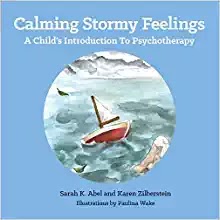Karen Zilberstein is the author of the new book Parents Under Pressure: Struggling to Raise Children in an Unequal America. She also is the co-author of the children's book Calming Stormy Feelings: A Child's Introduction to Psychotherapy. A psychotherapist, she is the clinical director of the Northampton, Mass., chapter of the nonprofit group A Home Within.
Q:
How did you meet the families you write about in the book?
A:
I leaned on my professional and personal community, who came through for me. I
spoke with colleagues, friends, and social service agencies, giving them
written materials about the project and asking if they knew of families who had
struggled with trauma, disability, mental illness, racism, or poverty who might
be interested in speaking to me.
They
sent a number of parents my way and invited me to present at various parent
support groups, where I met others. Each family I interviewed received a $25
gift card for participating. That attracted a few of the volunteers, but I
didn’t use those families in the book. The six I chose to profile all had a
genuine interest in sharing their stories so that others in similar
circumstances could benefit.
Q:
Each chapter of the book highlights a different issue, but what common threads
do you see running through the various issues you raise?
A:
The families experienced different types of hardships and challenges, but each
found that the social service system was not sufficiently up to the task of
helping. Sometimes the services they needed didn’t exist, sometimes they
existed but were hard to access, and at other times the professionals lacked
adequate knowledge and expertise.
The
end result was that families struggled not just with their initial problems,
but also with navigating services, which added to their stresses. Families also
tended to feel judged for their problems rather than helped.
I
also found that income and race makes a difference. Those with privilege and
means do not need to depend on public supports or, when they do, can manage
them better because they have the ability to push and challenge them. It is
another aspect of inequality in America. Even the helping systems favor some
parents while disadvantages others.
Underlying
our difficulties understanding families’ struggles and providing them with
adequate supports is an American narrative of individualism and idealized
parenting norms that are not well suited to the current realities. The problems
are widespread because they spring from cultural beliefs.
Q:
How did you research the book, and did you find anything that particularly
surprised you?
A:
Since I had worked in the field for years, and written a number of articles on
poverty, parenting, mental health, and trauma, I had some background before I
started. But I shaped the book around the stories of the families I included,
delving more deeply into the issues they discussed. I looked at the literature
and also interviewed professionals in the field who could speak to a different
side of the issue.
What
surprised me most is that none of the professionals contradicted the
impressions of the families. They each agreed that the systems are infused with
problems and noted that they constrain workers, as well as families. Programs
simply don’t have the resources they need to meet needs. It turns out that it’s
what everybody knows, but what nobody wanted to say too loudly.
Q:
What do you hope readers take away from the book?
A:
If we are to do a better job of supporting parents, we need to know what gets
in the way. Let’s stop judging and marginalizing struggling families and
instead reach out and help them. Many families find that their difficulties
isolate them. They need help not just from professionals, but from their neighbors
and community. Everyone has a potential role to play in alleviating the current
circumstances.
I
also want families who resemble the ones in the book to know that their
struggles are legitimate and understood and did not happen because they are
inadequate. The families I interviewed found that acknowledgement incredibly
important.
Q:
What are you working on now?
A:
I am continuing to think about the intersection between cultural ideals and the
ways we construct interventions. As a psychotherapist, I see every day how our
ideas about families, mental health, and helping translates into theories, treatments,
policies, and the ways we research each of them.
While
the field offers many helpful services, we continue to be short-sighted and
hemmed in by cultural beliefs. I think we often define problems too narrowly,
which limits how we assess need and deliver aid.
Q:
Anything else we should know?
A:
The backdrop to the book is the way parenting ideals have evolved over the
years into an intensive parenting style that is putting stress on families. It
works best for those with money, time, and education and is thus part of the growing
inequality in our society.
Since
the current system works for some, we are not going to be able to completely
change it. But we can give more help to those who are left out and try to
provide them more opportunities and fewer hassles.
--Interview with Deborah Kalb



No comments:
Post a Comment